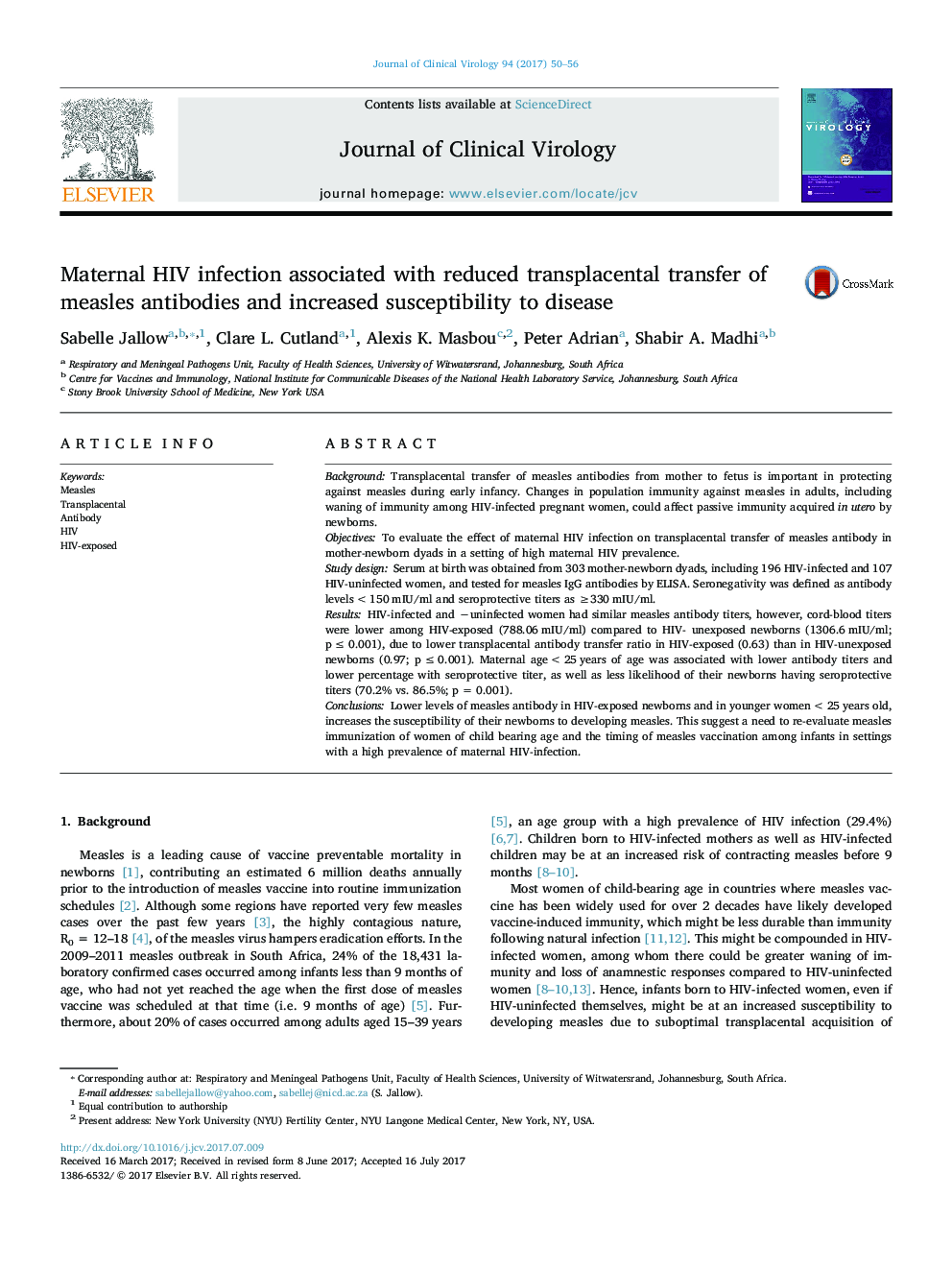| کد مقاله | کد نشریه | سال انتشار | مقاله انگلیسی | نسخه تمام متن |
|---|---|---|---|---|
| 5668042 | 1592332 | 2017 | 7 صفحه PDF | دانلود رایگان |

- Maternal HIV infection reduces transfer of measles antibodies from mother to fetus.
- HIV-exposed newborns have lower measles antibody titers.
- HIV-exposed newborns are more susceptible to measles.
- Women <25Â year old have lower measles antibody titers.
- Newborns of women <25Â year old are less immune to measles.
BackgroundTransplacental transfer of measles antibodies from mother to fetus is important in protecting against measles during early infancy. Changes in population immunity against measles in adults, including waning of immunity among HIV-infected pregnant women, could affect passive immunity acquired in utero by newborns.ObjectivesTo evaluate the effect of maternal HIV infection on transplacental transfer of measles antibody in mother-newborn dyads in a setting of high maternal HIV prevalence.Study designSerum at birth was obtained from 303 mother-newborn dyads, including 196 HIV-infected and 107 HIV-uninfected women, and tested for measles IgG antibodies by ELISA. Seronegativity was defined as antibody levels <150 mIU/ml and seroprotective titers as â¥330 mIU/ml.ResultsHIV-infected and âuninfected women had similar measles antibody titers, however, cord-blood titers were lower among HIV-exposed (788.06 mIU/ml) compared to HIV- unexposed newborns (1306.6 mIU/ml; p â¤Â 0.001), due to lower transplacental antibody transfer ratio in HIV-exposed (0.63) than in HIV-unexposed newborns (0.97; p â¤Â 0.001). Maternal age <25 years of age was associated with lower antibody titers and lower percentage with seroprotective titer, as well as less likelihood of their newborns having seroprotective titers (70.2% vs. 86.5%; p = 0.001).ConclusionsLower levels of measles antibody in HIV-exposed newborns and in younger women <25 years old, increases the susceptibility of their newborns to developing measles. This suggest a need to re-evaluate measles immunization of women of child bearing age and the timing of measles vaccination among infants in settings with a high prevalence of maternal HIV-infection.
Journal: Journal of Clinical Virology - Volume 94, September 2017, Pages 50-56